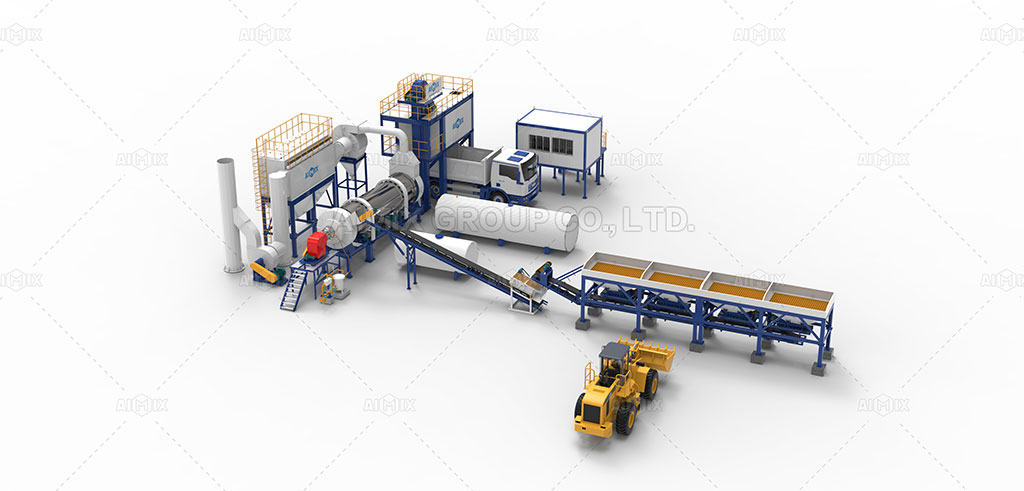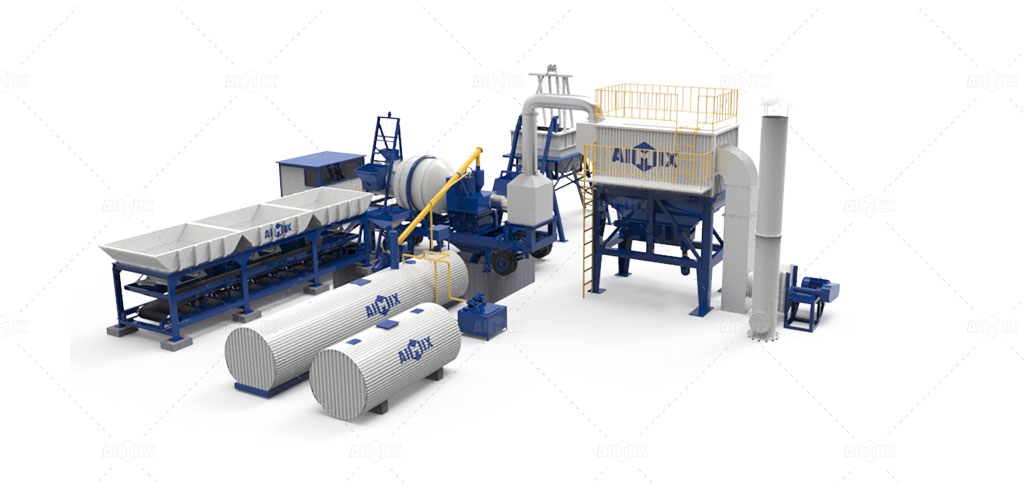Investing in an asphalt plant is a significant decision, and thorough research is crucial before making a purchase. It is essential to select an asphalt plant that meets your specific requirements. There are several types of asphalt plants available in the market today, each with different features, sizes, advantages, and operational styles.
The classification of asphalt plants is generally based on three main factors: production capacity, mobility, and technical process.
Production Capacity:
a) Small to Medium Asphalt Plants:
Also known as mini asphalt plants, these plants are ideal for small-scale engineering projects. They typically have a production capacity ranging from 20tph to 100tph. Small to medium asphalt plants sale AIMIX are suitable for projects such as rural and urban road construction, parking lots, and airports. They offer a cost-effective option with a low initial investment. Their compact design and portability allow for easy transportation between different sites.

b) Large Asphalt Plants:
As the name suggests, these plants have high production capacity and are suitable for projects requiring a significant amount of hot mix asphalt. They usually have a capacity exceeding 100tph, reaching up to 320tph or even higher upon request.
Mobility:
a) Stationary Plants:
Stationary asphalt plants are set up in a fixed location throughout the project. The produced asphalt is transported to the desired location using trucks. Stationary plants are ideal when frequent relocation is not required. Most large-scale plants fall into this category, with production capacities ranging from 40tph to over 300tph. They mainly employ forced mixing modes to ensure uniform asphalt mixing. Get more plant info here: aimixasphaltplant.com/asphalt-mixing-plant
b) Mobile Asphalt Plants:
Mobile asphalt plants are gaining popularity due to their ease of mobility. These plants are mounted on a chassis, allowing for convenient transportation and quick setup at different locations. They reduce construction time as the plant can be easily moved to the required site. The production capacity of mobile plants typically ranges from 20tph to 160tph.

Technical Process:
a) Drum Mix Asphalt Plant:
This type of plant is also referred to as a continuous asphalt mix plant because it produces asphalt mix continuously. It integrates the drying and mixing processes, minimizing time, labor, and production costs. Drum mix asphalt plants are suitable for large-scale projects.
b) Batch Mix Plant:
Batch mix plants produce asphalt in batches, offering precise control over the asphalt mix. This results in high-quality asphalt production. These plants are preferred when achieving accurate material ratios is essential. The specifications of the mix can be adjusted during the production process.
Understanding the different types of asphalt plants will help you make an informed decision when selecting the most suitable small portable asphalt mixing plants for your specific needs. Consider factors such as production capacity, mobility requirements, and technical processes to ensure optimal performance and efficient asphalt production.